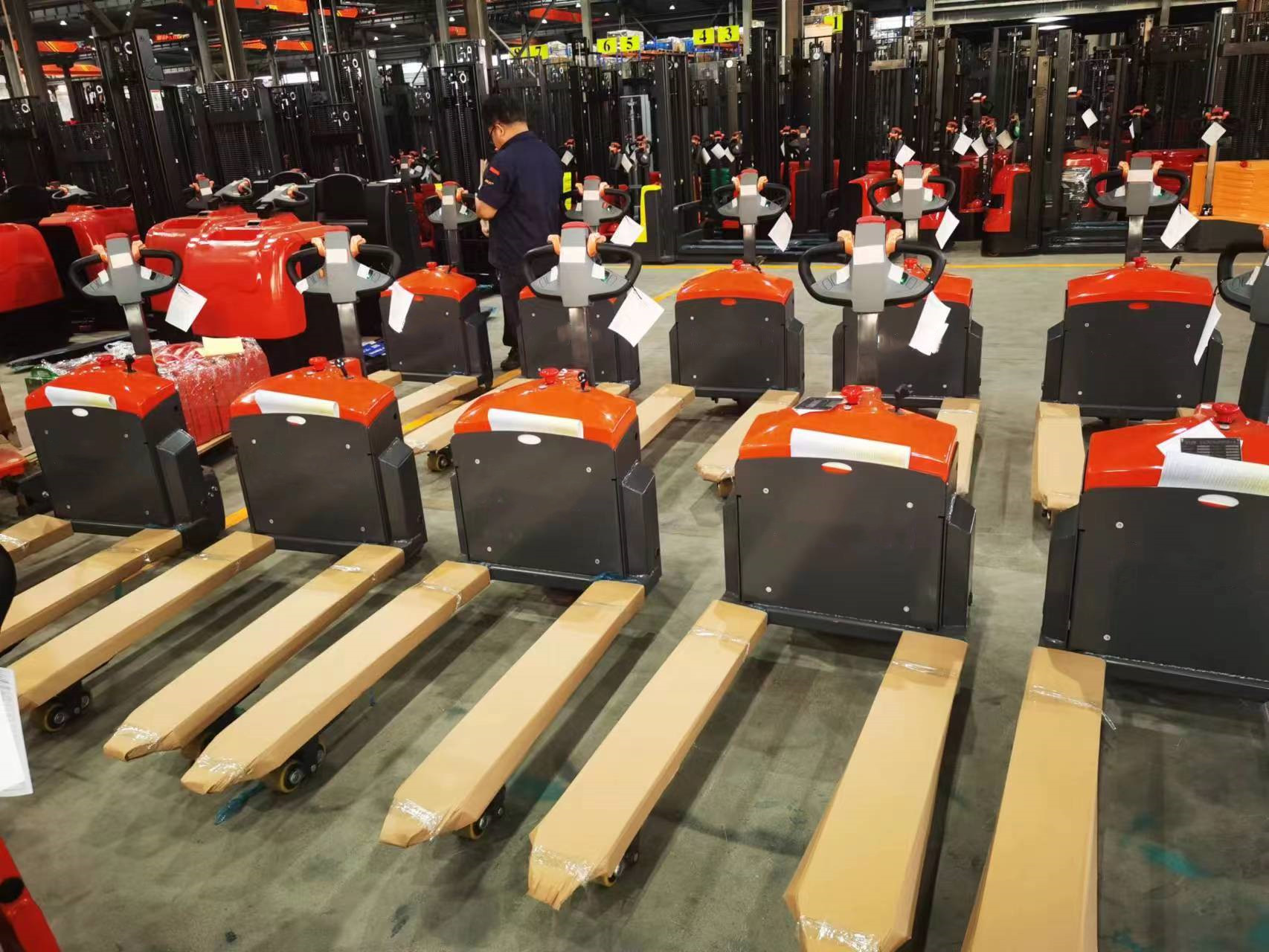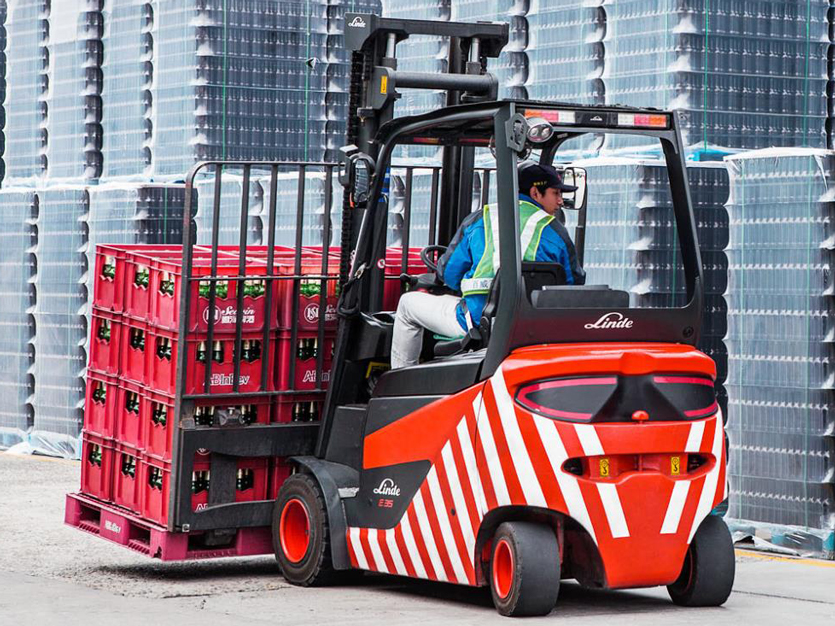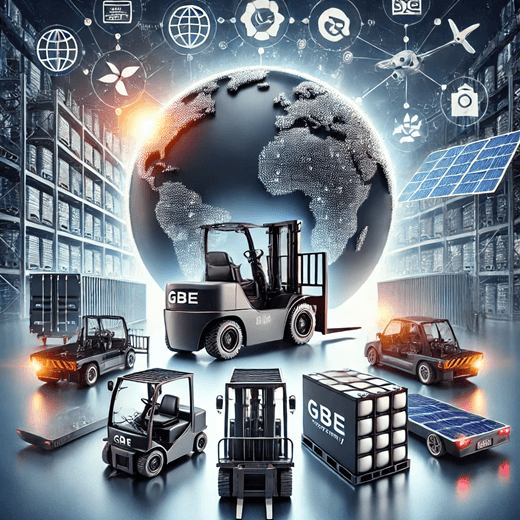GBEBATTERY the top lithium battery pack manufacturer for forklift
Forklifts are important equipment for material handling operations. They are versatile, flexible, and have a wide range of applications. Forklifts are mainly used for lifting, stacking, short-distance handling, and loading and unloading in various industries such as warehousing and logistics, manufacturing, transportation, ports, airports, postal services, tobacco, and food. According to the World Industrial Truck Statistics Association (WITS), forklifts can be divided into Class I electric counterbalanced ride-on forklifts, Class II electric ride-on warehouse forklifts, Class III electric walk-behind warehouse forklifts, Class IV internal combustion counterbalanced forklifts (solid tires), and Class V internal combustion counterbalanced forklifts (pneumatic tires). Among them, Class I to Class III are electric forklifts, and Class IV and Class V forklifts are internal combustion forklifts.

According to WITS statistics, global forklift shipments in 2022 will exceed 2 million units, with a compound growth rate of 7.83% over the past ten years. In terms of vehicle types, the compound growth rate of Class III vehicles is the fastest, followed by Class I vehicles; in terms of regions, Asia has the fastest growth rate, followed by Europe.
In terms of electrification rate, if the Class III vehicles with large volume and low value are not considered, the electrification rate of global forklifts will be 44.56% in 2022, which still has a lot of room for improvement. It should be noted that the electrification rate algorithm here is (1+2)/(1+2+4+5), among which the energy sources of Class 1 and Class 2 vehicles include lead acid, lithium battery, and hydrogen energy, and lead acid has been the main source for a long time.
We provide superior forklift lithium batteries to many countries and regions such as the United States, France, Japan, Indonesia, Malaysia, Vietnam, and the Middle East. We have successfully deployed more than 10 overseas companies in important markets around the world, and achieved a qualitative leap from point to surface in our own marketing service network.

While the company has orderly promoted the construction of its marketing service system, it has also taken a key step with far-reaching significance in its global strategic layout, leading the transformation and upgrading of the industry.
In response to the imbalance of international regional market demand, the company flexibly adjusted product design and marketing strategies according to local conditions, and targetedly increased marketing support and service support in major markets to further increase overseas market share. The company has also increased its development efforts in emerging markets such as Brazil, Southeast Asia, and the Middle East, achieving a significant year-on-year increase in product sales and attracting many new customers with strong strength to join the cooperation camp. Taking the opportunity of promoting the marketing of major customers, port machinery and large-tonnage forklifts, the company has established a large project management organization and formed a professional pre-sales and after-sales business team. While improving the service response speed, it ensures the business guarantee capabilities of major customers and large projects.
Electric forklifts have better performance and are suitable for areas with higher operating environments. Electric forklifts have the advantages of no pollution, low noise, and low cost of use. Compared with fuel forklifts, they are more suitable for food, beverages, medicine, electronics, light textiles and other places with higher environmental requirements. And with the continuous development of technologies such as batteries, motors and electronic controls, the performance of electric forklifts continues to improve.
According to the official website of Jixinxiang Forklift, under the same rated load (taking 3 tons as an example), lithium battery (electric) forklifts have better operational flexibility (reflected in a lower minimum turning radius and minimum right-angle stacking channel width) and higher operating efficiency (reflected in better maximum driving speed and maximum lifting speed).
Under the same tonnage, electric forklifts also have comprehensive cost advantages. Taking a 3-ton electric forklift and an internal combustion forklift as a comparison, in terms of the purchase of a new machine, customers who purchase an electric forklift need to pay for the entire machine and the battery. Taking into account the residual value of the battery, the purchase cost of an electric forklift is 75,000 yuan more expensive than that of an internal combustion forklift. In terms of energy consumption, assuming that a set of batteries for a 3-ton battery forklift (equipped with domestic batteries, 80V/500Ah) works for 8 hours, and a 3-ton diesel forklift (equipped with a National III diesel engine, rated power 36.8Kw) consumes 2.7L/h of fuel, and based on 8 hours of work per day and 280 working days per year, the energy consumption cost of an electric forklift in 6 years can save 153,000 yuan compared to an internal combustion forklift. In terms of maintenance, electric forklifts require maintenance and battery replacement, with a 6-year cost of about 1,500 yuan, while internal combustion forklifts require engine maintenance, basic repairs, overhauls and replacements, with a 6-year cost of about 38,000 yuan. Overall, the purchase and use costs of electric forklifts for 6 years can save 118,000 yuan, which has a relatively obvious comprehensive cost advantage.

Lithium battery forklifts have better performance and lower cost than lead-acid battery forklifts, and are the new generation of electrification trend. Traditional electric forklifts usually use lead-acid batteries, which have fewer charge and discharge times, short service life, high maintenance requirements, greater impact on the environment, and longer charging time. Compared with lead-acid batteries, lithium batteries have the characteristics of lighter weight, smaller size, and higher energy density. Therefore, lithium battery forklift models are more compact and the vehicle stability is higher; in addition, lithium batteries charge faster than lead-acid batteries, have longer service life, lower maintenance costs, and are green and environmentally friendly.



